
AN INCREASINGLY POPU- LAR way of eating called reducetarianism may sound like a new weight loss fad. And you might drop some pounds, should you try it. But that's not the main goal; instead, reducetarianism is about cutting down on the amount of meat and processed foods you eat, making small changes that are healthy for you and the planet.
"Many people think of meat consumption as an all-or-nothing premise: Either you're a vegan, or you're not," says Brian Kateman, co-founder and president of the Reducetarian Foundation. "But the vast majority of people don't want to go vegan." So he has a simple message for the rest of us: "Don't let perfection be the enemy of the good."
Compared with a vegetarian or a vegan, reducetarians take a more flexible approach that acknowledges the challenges of giving up meat entirely but still limits meat, poultry, and dairy products when possible.
If this all sounds good to you, here are six fairly simple things you can try:
1. Eat more plants
The flip side of eating less meat is eating more whole-plant foods. Animal products often displace fresh fruits and vegetables, leading to an increased risk of deficiency in nutrients from fruits, vegetables, and whole grains. A more plant-based diet can help lower the risk of health problems including heart disease, colon cancer, and obesity.
And research has shown that the climate toll from raising plant-based foods is half or less of the toll caused by animal-based foods. This is largely because it takes a lot more land, water, energy, and other resources to produce a pound of animal meat compared to plant protein, says Dana Ellis Hunnes, PhD, senior dietitian at UCLA Medical Center and author of Recipe for Survival. Just adopting a Meatless Monday or a few meatless meals each week can make a difference. Reducetarians believe that every plant-based meal is a win for people and the planet.
Denne historien er fra October 2022-utgaven av Reader's Digest US.
Start din 7-dagers gratis prøveperiode på Magzter GOLD for å få tilgang til tusenvis av utvalgte premiumhistorier og 9000+ magasiner og aviser.
Allerede abonnent ? Logg på
Denne historien er fra October 2022-utgaven av Reader's Digest US.
Start din 7-dagers gratis prøveperiode på Magzter GOLD for å få tilgang til tusenvis av utvalgte premiumhistorier og 9000+ magasiner og aviser.
Allerede abonnent? Logg på
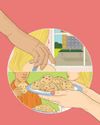
Cookies for Forgiveness
My blowup was half-baked. The apology wasn't
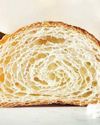
Puff the Magic Pastry
It always rises to the occasion
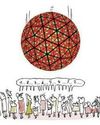
New Year's Traditions Around the World
1 MOST OF US spend the final seconds of each calendar year watching a nearly 12,000-pound geodesic sphere descend over Times Square in New York City.
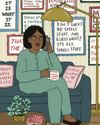
Mom's Wall-Sign Wisdom
She never met a plaque or bumper sticker she didn't quote
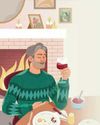
Protect Your 'Holiday Heart'
This joyful time of year can also be dangerously stressful

Heroes of the Holidays
It's not just Santa Claus bringing the holiday magic this season. As you'll see, he's got elves all over.

The Man Who Looks After His Wife's Ex
For him and his bride, \"in sickness and in health\" meant something really special
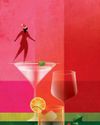
How Risky Are Those Holiday Cocktails, Really?
The latest recommendations about drinking and your health

HOW ONE KENTUCKY TOWN SAVED ITSELF
Downtown Hazard had lost its small-town mojo to drugs. Former addicts are helping to bring it back.
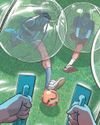
Dream It, Do It, Done!
Your bucket-list goals, accomplished